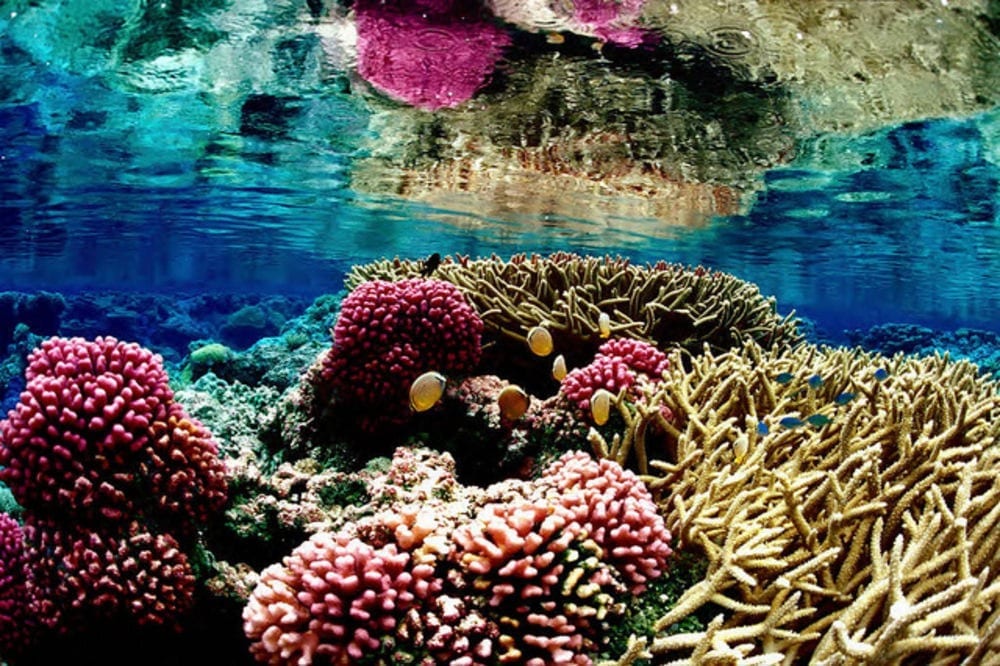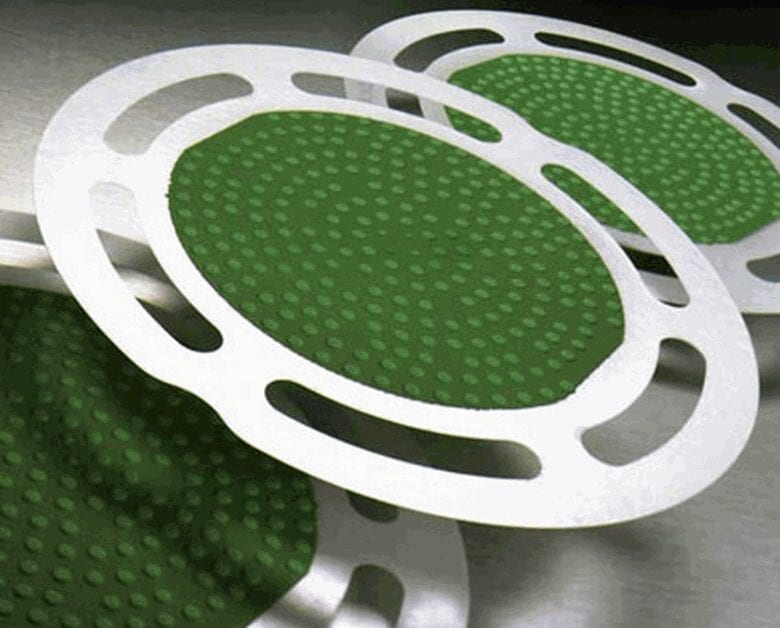
New material mimics the structure of coral, a natural adsorbent of heavy metals
A new material that mimics coral could help remove toxic heavy metals like mercury from the ocean, according to a new study published in the Journal of Colloid and Interface Science. The researchers, from Anhui Jianzhu University in China, say their new material could provide inspiration for other approaches to removing pollutants.
Toxic heavy metal ions like mercury, lead and arsenic are released into the water through human activity, including manufacturing and industrial processes. One major source of toxic metal contamination is the ocean. When mercury pollutes the water, plants and animals absorb it. The mercury builds up in the food chain, ultimately resulting in toxic fish. According to the WHO, between 1.5 and 17 in every thousand children living in selected subsistence fishing populations showed cognitive impacts caused by the consumption of fish containing mercury.
Heavy metals are also toxic to corals: even at low concentrations, small amounts of heavy metal pollution can kill corals. This heightened toxicity is due to coral being very efficient at collecting, or adsorbing, heavy metals. The researchers behind the new study have taken inspiration from this and developed a device that mimics the way coral adsorbs heavy metals.
Dr. Xianbiao Wang and colleagues have made coral-like nanoplates using aluminium oxide, with the aim of adsorbing mercury from water. Aluminium oxide has previously been used to remove pollutants, but the structure of the material has not been optimal, so they have not performed very well. The new nanoplates curl themselves up into a coral-like structure, which behaves in a similar way to real coral, making the material more effective.
“Adsorption is an easy way to remove pollutants from water, so developing new products that can do this is a big challenge in environmental remediation,” said Dr. Xianbiao Wang, one of the authors of the study from Anhui Jianzhu University in China. “The chemical and physical structure of such products is very important, it is interesting to design and fabricate adsorbents with different structures to see how they behave. In particular, materials that mimic biological adsorbents like coral have potentially huge applications.”
The researchers tested the coral-like nanoplates on removing mercury from water. They found that the coral-like structure removed around 2.5 times more mercury from water than the traditional aluminium oxide nanoparticles.
Read more: Synthetic Coral Could Remove Toxic Heavy Metals From the Ocean
The Latest on: Synthetic Coral
[google_news title=”” keyword=”Synthetic Coral” num_posts=”10″ blurb_length=”0″ show_thumb=”left”]
via Google News
The Latest on: Synthetic Coral
- Stony coral tissue loss disease is shifting the ecological balance of Caribbean reefson May 3, 2024 at 3:27 pm
A new study shows stony coral tissue loss disease is causing drastic changes in the Caribbean's population of corals, which is sure to disrupt the delicate balance of the ecosystem and threaten marine ...
- New Underwater Attraction Set To Open in Cancunon May 2, 2024 at 10:39 pm
This initiative, spearheaded by environmental experts, aims not only to draw more visitors to the region but also to protect its delicate marine ecosystems, particularly the struggling coral reefs.
- Have the world’s coral reefs already crossed a tipping point?on April 29, 2024 at 1:45 am
Earlier this month, the world officially entered its fourth — and probably worst — mass coral bleaching event in history, according to the National Oceanic and Atmospheric Administration and the ...
- Coral Reefs Newson April 27, 2024 at 5:00 pm
Artificial Reefs Help Preserve Coral Reefs by Shifting Divers Away from the Natural Ones, According to New Long-Term Study of One in Eilat Feb. 20, 2024 — Divers are essentially tourists who ...
- 'We are learning how to act as coral midwives'on April 26, 2024 at 11:25 pm
The Derby team is learning how to act as coral "midwives" and grow sought-after species in labs. They are working with a team in Indonesia to develop a blueprint that could provide an income for ...
- Scientists Are Building a Noah’s Ark for Coralson April 26, 2024 at 6:15 am
One effort includes a “Noah’s Ark” for corals—executed by placing rare, threatened species in aquariums in Europe as part of the World Coral Conservatory Project. While these efforts ...
- Can corals be saved?on April 25, 2024 at 11:30 pm
As record ocean heat threatens corals off Florida and across the globe, conservationists are shifting their strategy Share Comment Add to your saved stories Save Warning: This graphic requires ...
- Studying Artificial Reefs Helps Scientists Understand the Oceanon April 25, 2024 at 5:02 pm
Unusual reefs For over a century, Fast Company reports, a strange and varied assortment of objects have been placed on the ocean floors around the United States in the hope that they would serve as ...
- Johns Hopkins APL Developing a Suite of Solutions to Address Coastal Challengeson April 25, 2024 at 11:49 am
As coastlines become more difficult to secure, APL is combining expertise in materials engineering, marine biology, plant biology, computer science and modeling to fortify coastal resilience.
- New dyslexia treatment aims to overcome biggest hurdle in cognitive healthcareon April 23, 2024 at 9:13 pm
Linguist and cognitive scientist, Dr. Coral Hoh, certainly thinks so and has dedicated her 30-year career to developing Dysolve, an AI-powered system geared toward the the treatment of Dyslexia. Hoh ...
via Bing News









